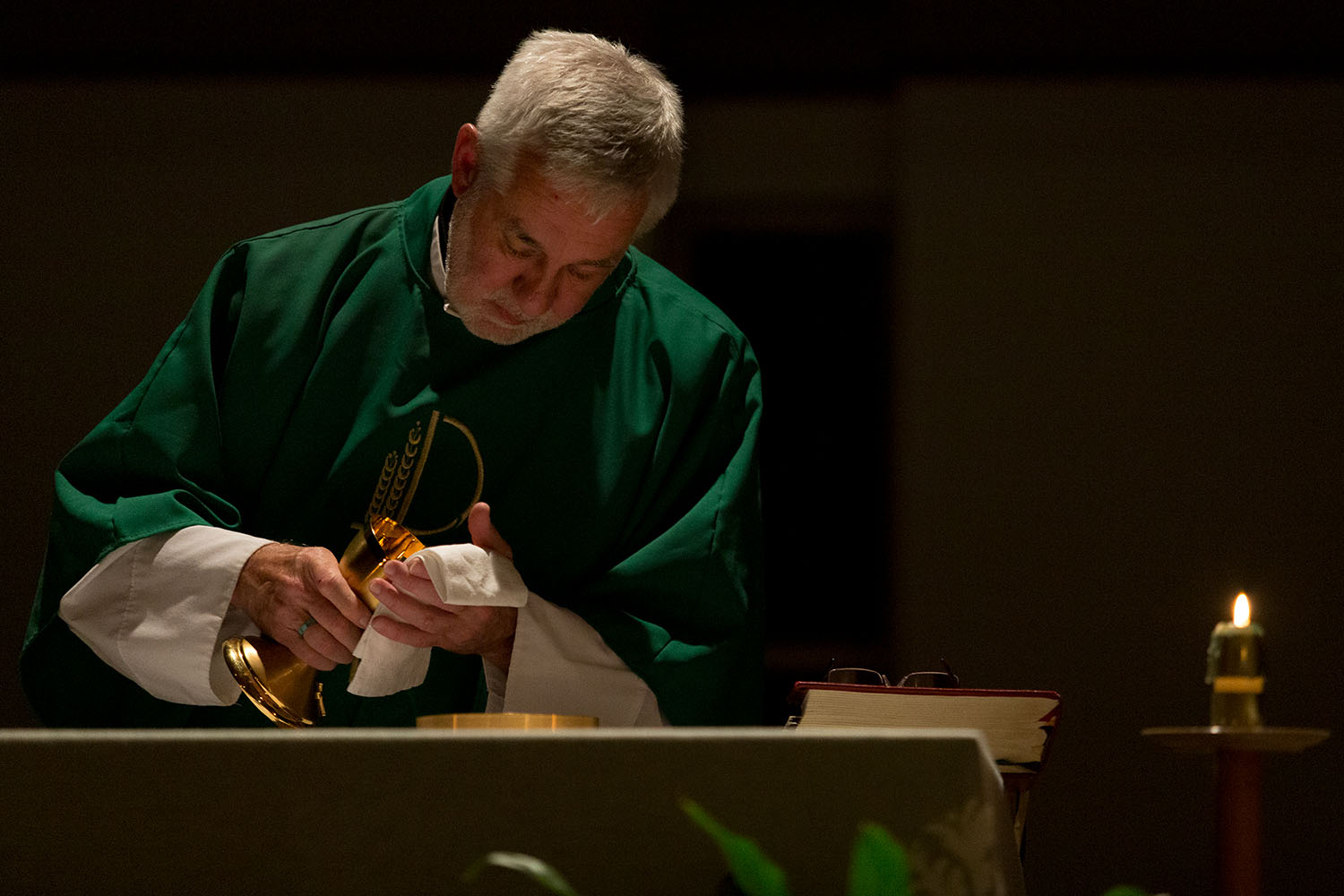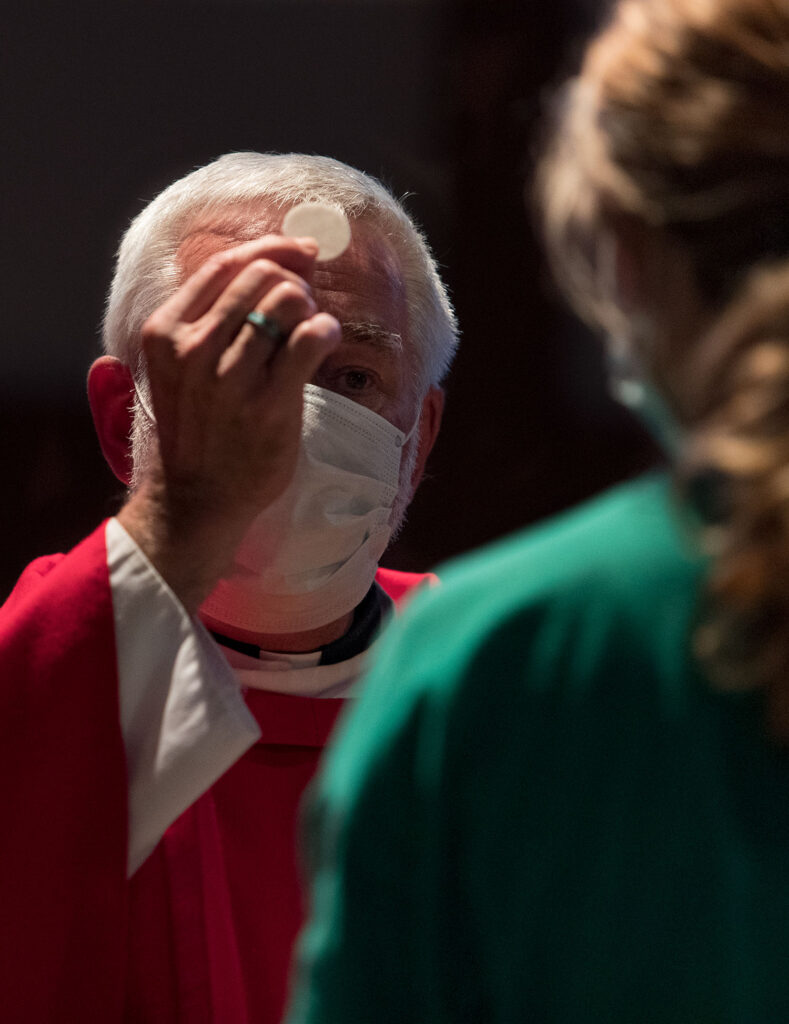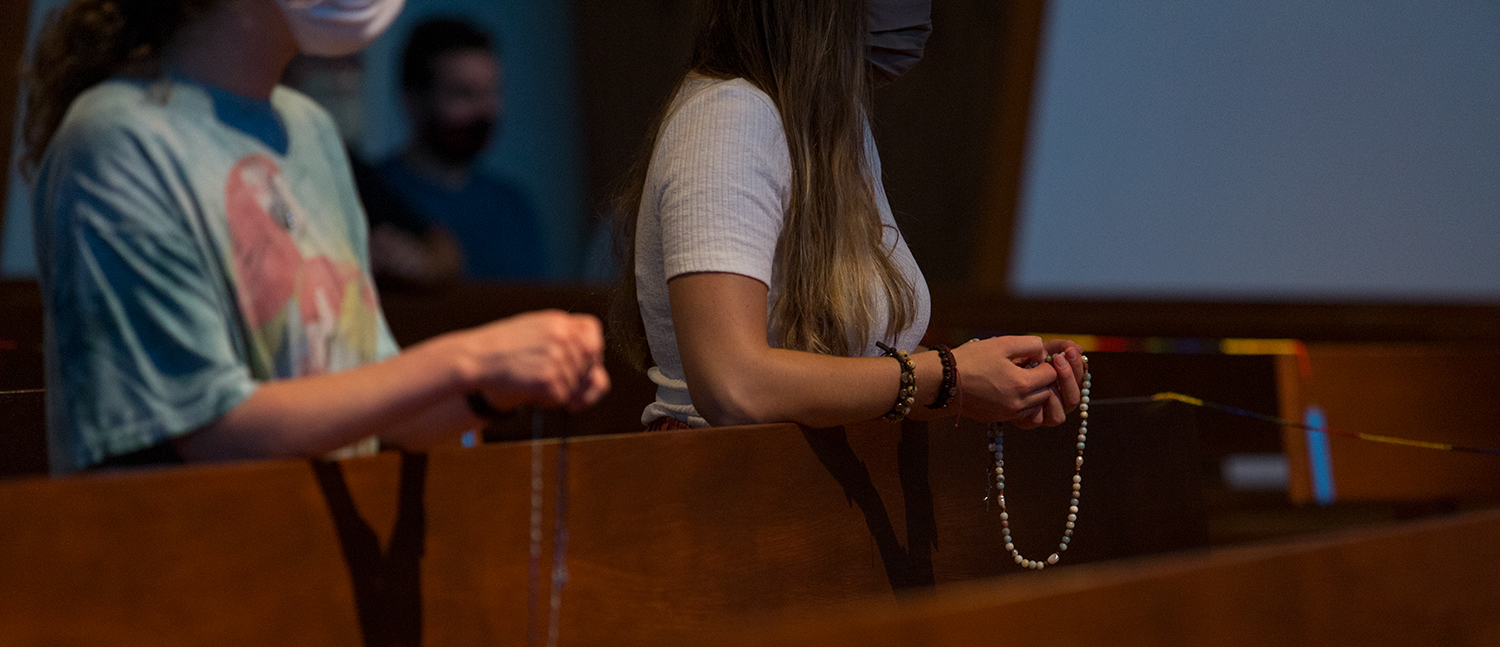“It was really when I was 26 or 27 that I thought, ‘I’m gonna go to hell, so what am I gonna have to do to get myself into heaven?’” Williams said.
Due to the negative experiences Williams had in childhood, he never got the chance to figure out the right way of living a godly lifestyle. He only knew that bad feelings came with the mentioning of God.
Williams’ established fear of God as a child caused him to fear the possibility of hell as well.
He said he still did not know much about Catholicism because of the prior negative experiences, but he decided to go to seminary when he was 27 to learn what he did not when growing up. He said going to seminary was his way of making a deal with God to get forgiveness for the time he lost to partying and ignoring his faith years before.
After much spiritual counseling, which he received during his time in seminary, his thoughts about God changed. He realized that the higher power was calling him to preach.
“I really fell in love with the Catholic Church,” Williams said. “I fell in love with God for the first time in my life.”
While studying in Europe in 1996, his last year in seminary, he participated in a six-day silent retreat in Belgium. He said that he began this retreat by going to the gym in the monastery where he was staying and silently begged God to tell him what he needed to know and give him a sign that God loved him.
He said that he walked a lot due to the fact that he was not able to talk. On the fifth day of the retreat, he heard the answer after a near death experience at a small stream in the middle of winter surrounded by two feet of snow. While exploring alone, he nearly slipped into the stream while attempting to cross.
“I remember standing there thinking, ‘Be careful you idiot; you’re out here in the middle of nowhere,’ and then that thought came again, ‘And if you die, you might go to hell,’” Williams said.
This realization of mortality combined with the impact of his surroundings allowed him to hear what he needed to know.
“I could hear the snow falling. It was so quiet,” Williams said . “I’m standing there thinking all these things, and I hear God say, ‘I know where you are. I know where you are.’ That was the end. I never have doubted since that moment that God loves me, and that he wants me with him, and he’s with me, and I’m going to heaven.”
After he graduated from seminary, he began to work with Catholic churches on college campuses. He said that he has always worked with college students, and he loves it because of the physical and mental growth he gets to witness in others. He has seen students become husbands and wives, mothers and fathers, and the impact that going to church has had on these roles.
“I’ve seen lots of students come in here angry, or hurt, or frustrated, or confused or sad,” Williams said. “Because of the love of Christ, their lives are changed.”
The struggle to reach this growth can be found in other religions, too.



